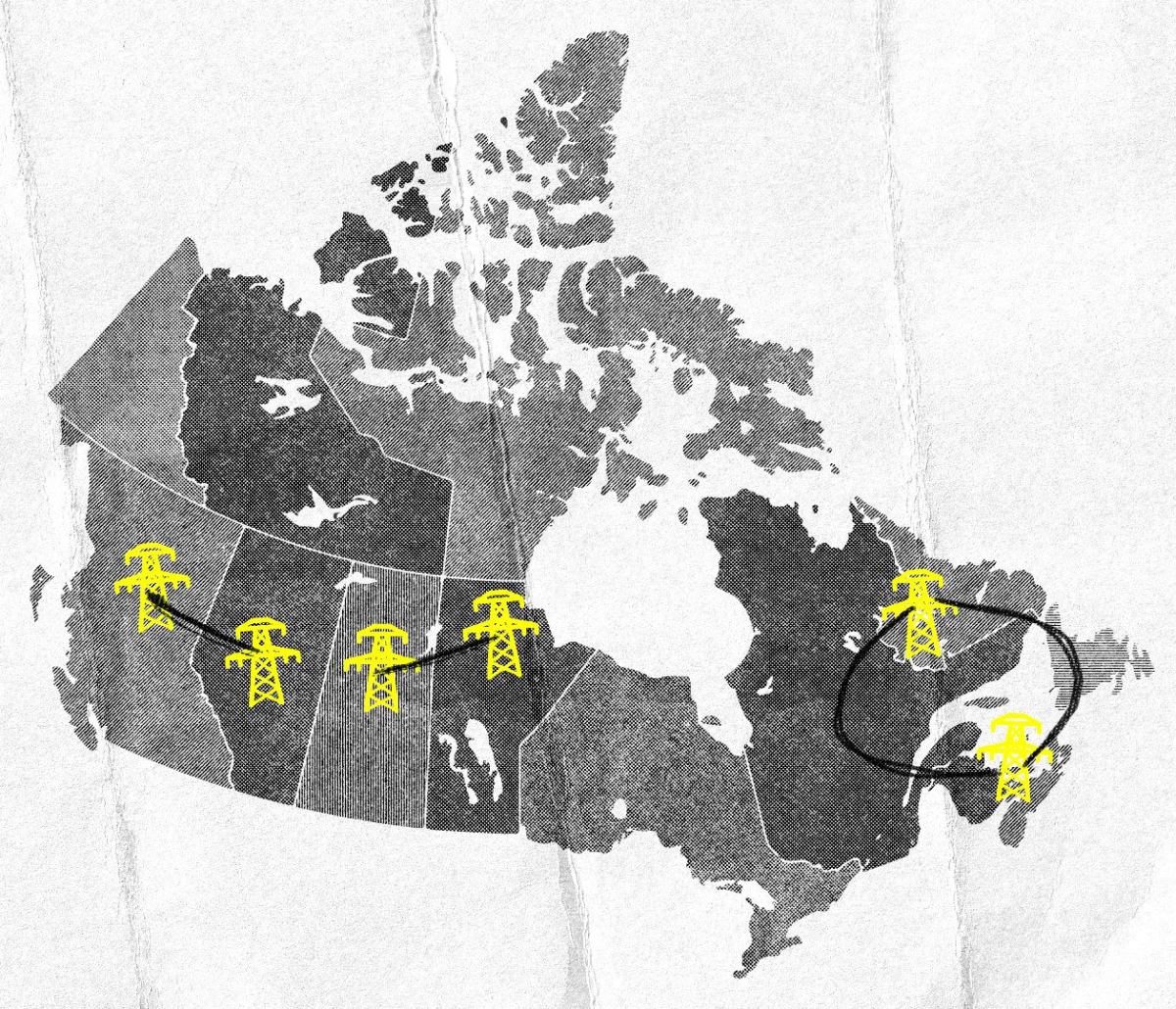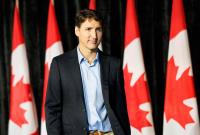Support strong Canadian climate journalism for 2025
A battle over Canada’s clean electricity future is heating up as the David Suzuki Foundation accuses a prominent electricity industry lobby group of misleading the public.
On Friday, Electricity Canada launched an ad campaign stating that Ottawa’s proposed clean electricity regulations will impact power grids’ reliability and increase costs for ratepayers. The industry group, which represents both Crown-controlled and publicly traded utilities, as well as fossil fuel companies such as TC Energy, says the federal government has ignored its advice and “blackouts or brownouts will be inevitable.”
“The government’s proposed Clean Electricity Regulations will determine how trillions of dollars’ worth of investments will be spent. We need regulations, though, that work in the real world,” said Electricity Canada CEO Francis Bradley in a statement. “This isn’t politics: this is physics. That’s why we need to get these regulations right or the consequences could be catastrophic.”
But as Dalhousie University professor Larry Hughes has previously told Canada’s National Observer, energy planning is always about politics. Canada has a complicated and fragmented approach to providing electricity. Provinces are responsible for regulating utilities operating within their borders, creating a patchwork of regulations from coast to coast.
The proposed clean electricity regulations aim to have decarbonized power grids by 2035, in order to support further emissions reductions in other sectors by 2050. The goal is 100 per cent clean electricity, but under the proposed rules some flexibilities are included that would allow fossil fuels to still be used at minimal amounts to keep the grid reliable.
For Stephen Thomas, clean energy manager at the David Suzuki Foundation, the ad campaign against the clean electricity regulations is in fact a “misinformation” campaign. The foundation points to modelling it has done, as well as research from the Canadian Climate Institute showing it is possible to have affordable, reliable and clean electricity by 2035.
“It’s disappointing to see an industry association like Electricity Canada employ such misleading rhetoric because some of its fossil fuel-powered members are delaying the transition to clean energy,” he said in a statement Wednesday.
“Electricity Canada claims that Canada’s electricity system will be unreliable without large amounts of new and existing natural gas,” he added. “This is misleading as regional grids without significant natural gas already exist in Canada and around the world, and the clean electricity regulations already include significant extensions and exemptions for natural gas.”
In an emailed statement, Electricity Canada's president and CEO Francis Bradley said Canada's electricity system will have to double or triple in size to meet the needs of the energy transition — and that independent energy system operators should be left to decide what is and isn't possible to deliver reliable energy.
“As they have said, right now the Clean Electricity Regulations would not pass that reliability test in the most affected jurisdictions,“ Bradley wrote. “Rules need to work in the real world as we work to expand the system.“
Bradley added the electricity system “has proven its commitment to reducing its emissions, having already reduced greenhouse gases by 55% since 2005, more than any other part of the economy.“
Over 90 per cent of electricity used in British Columbia, Quebec, Manitoba and Newfoundland and Labrador is clean, whereas fossil fuels like coal, oil and natural gas dominate in Nova Scotia, Alberta, Saskatchewan and Nunavut.
Collaboration between provinces — which Canada’s National Observer has previously dubbed the “Buddy System” — remains one of the most promising ways to decarbonize power grids. Rather than building a literal coast-to-coast-to-coast transmission network, regional grids could pair provinces with huge hydro reserves and fossil-fuelled provinces that have wind and solar potential to rapidly slash emissions while building more reliable and affordable power grids.
That strategy is possible mostly thanks to geographic luck. Each province that still depends on burning coal, oil or gas to generate electricity has a neighbour next door with hydropower that can lend a hand. By linking British Columbia with Alberta, Manitoba with Saskatchewan, and Quebec and Newfoundland and Labrador to Nova Scotia and New Brunswick, power grids can be rapidly decarbonized while meeting growing demand.
Thomas says that while electricity planning is complicated, the choice between extending the life of the fossil fuel industry and building clean, affordable and reliable power grids is clear.
“The federal government should remember that fossil fuel interests will always fight climate action. Industry rhetoric in 2017 and 2018 was similar when regulations were being developed for a 2030 phase-out of coal-fired electricity,” Thomas said. “Now, provinces are meeting coal phase-out targets early and accelerating timelines even faster than the regulations require, while saving money.”
Electricity Canada did not return an immediate request for comment.
Among Electricity Canada’s 41 members are TC Energy, Rio Tinto, Capital Power, Fortis, Hydro-Quebec, Newfoundland and Labrador Hydro, SaskPower and Hydro One.






Comments
This blithely assumes that hydro power is in fact green and sustainable, an assumption many of us have come to realize is simply not true.
Hydro is a heck of lot more reliable than natural gas, just asl Albertans when their gas plants all decide to shut off and tge grid operators have to issue alerts , 2 X already in 2024.
Then is BC and Quebec we are watching climate change affect rain and snow thus reducing water for producing electricity
And Hydro is much greener than nuclear and fossil fuel natural gas
It's unfortunate the 2 provinces using fossil fuels for most electrical generation are the same 2 who refuse to encourage renewable energy by wind and solar.
So between a rock a hard place do we listen to lobbyists who want more fossil fuels and burn up the earth or get serious about wind and solar.
Several countries in the world have achieved 100 % non fossil fuel electricity generation but our Big Oil Canadian lobby supported through millions from the USA, completely deny climate change